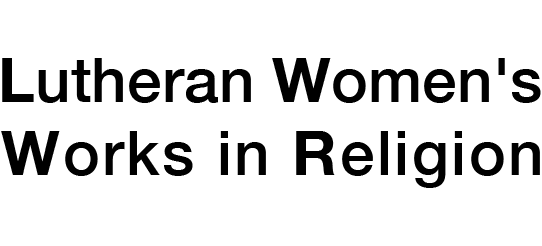Bibliography Author: Kelly Denton-Borhaug
THEOLOGY
Kelly Denton-Borhaug , Review of "Review of From Proverbs of Ashes: Violence, Redemptive Suffering, and the Search for What Saves Us, by Rita Nakashima Brock and Rebecca Parker" In Dialog: A Journal of Theology.ETHICS
Kelly Denton-Borhaug , Review of "Review of Performing the Faith: Bonhoeffer and the Practice of Nonviolence" In Journal of Lutheran Ethics. 2005ETHICS
Kelly Denton-Borhaug , Review of "Review of Reconciliation: Restoring Justice, by John W. De Gruchy" In Journal of Lutheran Ethics. March 2004ETHICS
Kelly Denton-Borhaug U.S. War-culture, Sacrifice and Salvation., London : Equinox Publishing 2011Despite the massive growth of the military industrial complex in the U.S., the sacred canopy of war as ‗a necessary sacrifice‘ obfuscates the pernicious reality of U.S. war-culture. This book theologically explores and ethically interrogates sacrificial frameworks and assumptions that electrify and normalize war-culture in the post-9/11 period of the U.S. It questions whether theological sacrificial frameworks may be rehabilitated, and if it is possible to “detranscendentalize” war.
THEOLOGY
Kelly Denton-Borhaug "War-Culture and Sacrifice" 18 In Feminist Theology - The Journal of The British and Ireland Feminist School of Theology. vol. 2, 2010 : 175-191This article first explores and exposes the interpenetration of the ethos, institutions, and culture of militarism in the United States‘ culture at large. Second, the article investigates the rhetoric and practices of sacrifice that run like a current between war-culture and popular understandings of Christianity in the United States. Frameworks of sacrifice animate war-culture and simultaneously mask its operations with a sacred canopy.
THEOLOGY
Kelly Denton-Borhaug "Sacrifice and U.S. War-Culture" In Prajna Vihara: Journal of Philosophy and Religion. vol. 10, no. 1-2, Assumption University Press: Graduate School of Philosophy and Religion at Assumption University, Thailand Jan-Dec 2009What would we say about the losses associated with war if we did not describe them as sacrifices? How is this experience influenced by narratives of Jesus‘ cosmic sacrificial self-giving? This article explores the electrical exchange of sacrificial frameworks in U.S. war-culture and popular Christian understandings and practices to ask: Is there a way to rehabilitate understandings of sacrifice in Christianity without aiding and abetting war?
THEOLOGY
Kelly Denton-Borhaug "A Theological Reflection on ‘Torture and Democracy’" In Dialog. vol. 47, no. 3, August 2008 : 217-227First, this article summarizes the findings of a comprehensive resource, Torture and Democracy, by Darius Rejali, as a corrective for the current state of confusion and concealment in the United States with respect to the persistence of torture. Second, it theologically responds a) by reflecting on victims of torture as ―nonpersons‖ in light of theological anthropology, and b) by addressing how sacrificialism in religion influences social assumptions about torture.
THEOLOGY
Kelly Denton-Borhaug "A Deadly Nexus: ‘Necessity,’ Christian Salvation and War Culture" Fall In International Journal of the Humanities. vol. 5, no. 9, 2007 : 161-168This article draws on analysis of the ―logic of masculinist protection,‖ outlined by Iris Marion Young to describe the security regime that emerged in the United States following Sept. 11, 2001. Young‘s analysis is brought to bear to explore Augustine‘s writing on war. I probe how ―necessity‖ and ―sacrifice‖ in Christian ethics and theology wittingly/unwittingly undergirds the logic of masculinist protection in just war culture.
THEOLOGY
Kelly Denton-Borhaug "The Language of ‘Sacrifice’ in the Buildup to War: A Feminist Rhetorical and Theological Analysis" Spring In The Journal of Religion and Popular Culture. 2007The language of “sacrifice” in official U.S. government communications was strategically utilized to generate support for the Iraq war in the American public following Sept. 11, 2001. I explore victimage rhetoric and framing, and feminist theological criticisms of Christian atonement metaphors to argue that familiar religious connotations of sacrificial language created a frame with deep emotional resonance that encouraged quietistic support for war.
THEOLOGY
Kelly Denton-Borhaug "The Complex and Rich Landscape of Student Spirituality: Findings from the Goucher Spirituality Survey" Fall In Transformation; Journal of Religion and Education. 2003This article explores the shift taking place on college campuses regarding religious and spiritual beliefs, through analysis of the findings of a ‘spirituality survey’ at Goucher College in 2003-2004. Published jointly by EDUCATION as Transformation and NASPA. Fall, 2004; and Journal of Religion and Education, Fall, 2004.

